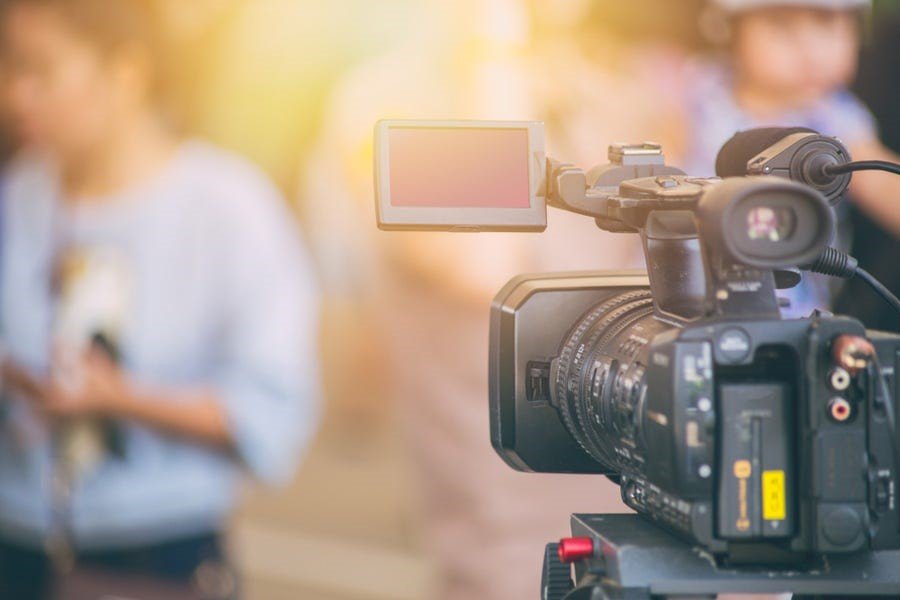The documentary genre has undergone significant changes in recent years, leading to potential confusion regarding its definition. A documentary is a non-fiction film that captures and presents reality in some form. These films often aim to shed light on unique, intriguing, or lesser-known perspectives.
Most documentary filmmakers want to portray their stories in the truest light. With such a competitive and demanding genre, stress levels can mount, thus placing importance on post-production relaxation methods.
With that in mind, we’re taking a closer look at the world of documentary filmmaking and how directors unwind after a major project.
The Immersive World of Documentary Filmmaking
Filming documentaries presents greater challenges compared to shooting scripted films. It involves navigating difficult shooting conditions while maintaining situational awareness and staying focused on the present, especially for student documentarians. All crew members must remain attentive to what is happening behind and in front of the camera. This ensures that no significant moments or ideas are missed, as capturing them could enhance the quality of the documentary.
The process of creating a documentary naturally comes with significant hurdles. True artists are not simply born; they achieve greatness through their ability to overcome obstacles and their dedicated hard work. Therefore, patience, humility, passion, and skill are crucial factors for success in the field of documentary filmmaking.
Working in the film industry is incredibly rewarding but can also be overwhelming. It’s common for aspiring filmmakers to dream of achieving the same level of success as legendary figures like Stanley Kubrick, Roger Deakins, or Aaron Sorkin.
However, it’s important to remember that true happiness shouldn’t depend solely on external accomplishments. Instead, it’s crucial to cultivate inner contentment. To maintain good mental health within the industry, five tips can greatly benefit filmmakers. These include practising meditation, spending time in natural sunlight, staying organised, replacing negative habits with positive ones, and being fully present in the moment.
While physical stress is something that filmmakers are often aware of, it’s equally important to address mental stress before it becomes overwhelming. In fact, mental stress has a cumulative effect that can lead to an eventual breakdown if not properly managed.
Post-Project Relief: Taking a Step Back
Directors are responsible for guiding a project from the script to the final product on screen. In the realm of film and television, the pre-production phase entails supervising various elements such as casting, design, locations, set construction, props, costume, make-up, cinematography, and overall visual aesthetics. Following the completion of filming, the director typically supervises the editing process and ensures the completion of sound and picture finishing. However, they are also accountable to broadcasters and executive producers, who usually have ultimate decision-making authority. Once again, the timelines can be restrictive, and the demands can be rigorous.
With that said, it’s imperative to take a step back during and after a project being worked on.
Personal preference is important, but some of the most notable activities directors utilise as a method to unwind include:
- Entertainment
Watching films and TV shows, art and creative outlets, or even the top-rated Blackjack UK sites are noteworthy choices that directors use to unwind.
- Travel & Exploration
Naturistic walks are the perfect tool to destress. As a documentary filmmaker is often required to travel to different countries, one can learn about new cultures and embrace each unique location as a stress reliever.
- Philanthropy and Social Engagement
The influence of a filmmaker can be used for advocacy, and the practice of philanthropy can be incredibly rewarding, specifically if it’s related to the project in question.
Alleviating other pressures can be achieved through:
Preparation: Meditation serves as a valuable source of inspiration. It teaches individuals how to gain control over their racing thoughts and how to prevent them from spiralling out of control. By adopting stress management practices, individuals actively address and resolve their stress rather than dwelling on it or succumbing to worry.
Communication: Engaging in conversations with fellow directors provides an effective outlet for expressing emotions, seeking advice, and unburdening oneself. It is important to acknowledge that others may also be experiencing stress and to avoid directing frustrations towards them, even in the presence of personality clashes.
Reality check: If a film’s success is contingent upon a delicate setup that a brief break would disrupt, it indicates a deeper underlying issue in the production. Professional sets typically allocate time for unforeseen circumstances, as no director plans for a flawless shoot. Promptly communicating any challenges or support needed can be addressed more efficiently and effectively.
Detachment: Recovery can only happen when our minds revert to their state before being stressed. To facilitate this process, we must mentally disengage from work-related thoughts, effectively giving our minds a rest. Detaching ourselves contributes to improved recovery and enhances work-related results, such as performance and engagement. This contradicts the common belief that increased work hours lead to better performance.
Final Thoughts
The advantages of formulating and implementing a deliberate recuperation strategy are evident: Recuperation after filmmaking can maintain your vitality, health, upbeat emotions, and drive, as well as enhance your mental and physical capabilities and overall life contentment. Nevertheless, the times when you require recovery, the most are precisely when you are least inclined to partake in recovery endeavours. By adhering to these tactics for recuperation, you can more effectively establish and implement a purposeful recovery plan to uphold your energy and performance in the long run.



